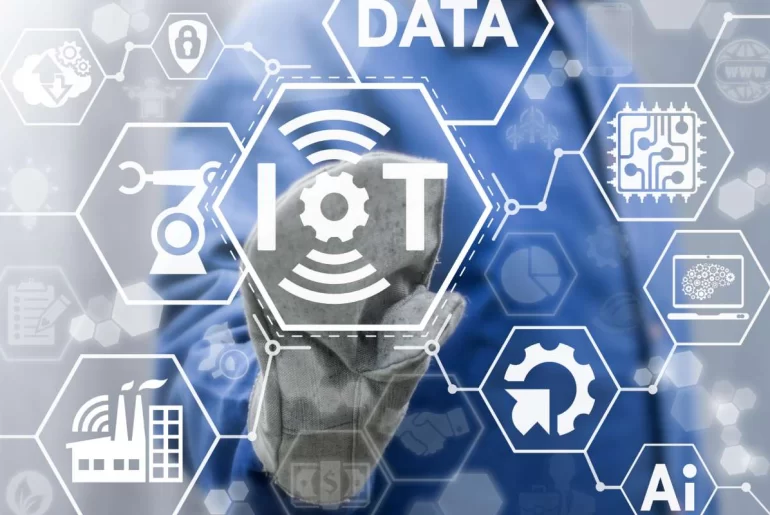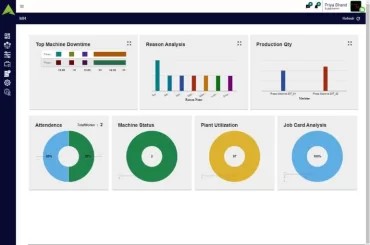It’s a fact: the Internet of Things (IoT) is immensely helpful across industries. Its value is clear and adoptions are skyrocketing.
But even now, utilizing IoT to its fullest potential is difficult, as the technology is still relatively nascent and the path to take is not yet outlined in a way that it is easy for businesses to relate to and use.
This is where frameworks come in.
Frameworks support business owners, making it easier to make decisions between fewer options because you know the results will work.
But what is an IoT development framework?
An IoT development framework is a set of tools and technologies that provide a structure for building, deploying, and managing internet of things (IoT) applications and devices.
These frameworks typically include software libraries, APIs, and development platforms that simplify the process of connecting devices to the internet, collecting and analyzing data, and creating user interfaces for interacting with the devices.
Some examples of popular IoT development frameworks include AWS IoT, Microsoft Azure IoT, and Google Cloud IoT.
IoT frameworks are available to assist you in developing IoT solutions without having to do everything yourself. Some merely provide you with a framework within which to operate, while others charge a fee in exchange for enterprise-level data analysis and control. A crucial aspect of your IoT project’s success is making the proper choice.
IoT frameworks, also known as IoT platforms, were created to address the unbounded complexity of creating IoT solutions. IoT solutions may consist of Hardware, Software, Operating systems, middleware, and firmware, Communication, Network architecture, and Security and firewalling.
Operating systems, middleware, and firmware, Communication, Network architecture, and Security and firewalling.
Frameworks are often offered by companies that are already big players in the industry, such as Google, Cisco, and Amazon.
However, several other open-source frameworks have been put forward by groups of users seeking an environment to develop applications and solutions for their own organizations.
While proprietary frameworks often offer better support, open-source frameworks typically pay off flexibility for early simplicity of use and security.
How to choose a suitable IoT framework
Different frameworks are better suited to various IoT solution types as well as various business requirements. The success of your project is aided by choosing the appropriate IoT framework because no one IoT framework stands alone as ‘the best’ or ‘the correct answer’.
An ideal framework should check the following boxes:
Future-proof
Invest in a structure that can grow and change with the market that is safe and scalable. IoT is still in its early stages, thus many new technologies will probably have an impact on its ecosystem. Because of this, you want to take into account a platform that updates itself frequently in accordance with new standards and protocols that appear in the IoT landscape, regardless of how they affect the system or cloud environment, security stack, or end-point apps.
Secure
The success of your project depends on this IoT development feature. Analyze the security features of every IoT platform in great detail. By selecting a secure framework, you may prevent breaches and other types of cyber assaults from damaging your company’s brand and keep your personal or third-party data and information safe and secure.
Fast time-to-value
Your development and deployment procedure should be made simpler and faster by the ideal framework. To avoid having to create and deploy on two different platforms after building your PoC, look for platforms that offer end-to-end solutions. Utilizing a platform with a full array of IoT capabilities can typically result in products that are more dependable and secure, as well as faster time to market.
Pricing
Knowing the pricing structures is one of the most important factors to take into account when choosing an IoT framework. In order to avoid unpleasant surprises when you are about to close a contract or begin a project, be wary of any hidden costs.
To Conclude
Choosing the correct IoT platform for your project is a matter of balancing out several factors, including base costs, the total cost of ownership, and expected profitability or savings. You also need to take into account costs in time and capital associated with development and planning. Making the best choice isn’t always simple.
Inteliiot has experience creating industrial networks, sophisticated multi-device, multi-site data analysis systems, and IoT applications to control equipment in a variety of industries for commercial clients. We can assist you in developing the IoT solution that will best support the success of your company because they have both technical and business knowledge.
If you want to know more about how the Internet of Things can help your business or what type of framework suits your project best, please feel free to get in touch with us.
Inteliiot uses Senskon, a sensor stack configurable to meet a client’s specific needs, to solve many business problems for reputed clients.
Inteliiot is a tech-enabled company that unleashes the power of IoT to help you improve your business using various services. By helping our customers create more goods and services while using fewer resources, we at Inteliiot are contributing towards building leaner and more responsible supply chains.





